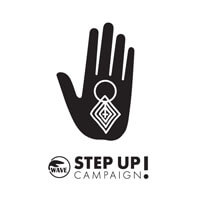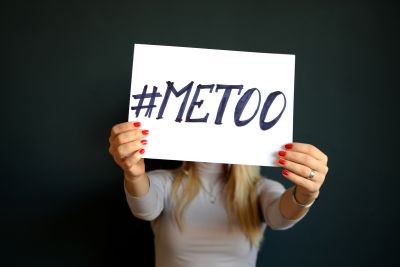„FGM is not a cultural traditional practice, but actually it is child abuse. […] Fundamentally, FGM is there to control women and girls’ bodies, and especially their sexuality.” – Leyla Hussein
Child, early and forced marriage as a worldwide practice
“If there is someone hearing what I’m saying now, I would suggest to them to study rather than getting married”, Yelina
“I suffered by being married as a child and I don’t want this to happen to any other girl of my age. When I was younger I had no idea how to stop my marriage but now I’ve learnt how to help other girls to stop theirs”
Rape trials: re-victimising the women instead of punishing the perpetrators
“She didn´t say no”, “She meant yes when she said no”, “She was drunk but she knew what she was doing”, “She didn´t scream”, “She wore a short dress”, “You have to look at the way she was dressed. She was wearing a thong with a lace front”, “By her behaviour, her dress or by her look, she asked for it”, “Are you sure it was not your fault? Maybe you provoked him”, “There was no crying, no screaming. You didn´t push him away”.
These are forms of victim blaming and rape myths which are “attitudes and beliefs that are generally false but are widely and persistently held, and that serve to deny and justify male sexual aggression against women” (Kimberly Lonsway and Louise Fitzgerald in Psychology of Women in 1994). They are tied to stereotypes about how victims of rape should behave before, during and after the assault.
Another common assumption is that rapes are mostly committed by strangers even though the majority of rapes are committed by someone known to the victim, such as a friend, a colleague, a family member, partner or ex-partner. The ‘stranger myth’ sends the wrong message that a sexual assault committed by someone known to the victim is not rape and, consequently, it should not be a crime.
Gender biases are deeply rooted in the justice system. Victims of rape face social and legal barriers such as gender stereotypes, misconceptions of what sexual violence is, victim-blaming, credibility questioning, inadequate support and ineffective legislation. In the end, rapes are hugely under-reported due to lack of trust in the justice system or because of fear of not being believed. It takes a lot of courage and determination to report a rape and when women do so, they are often blamed and humiliated, being repeatedly asked what they did to provoke it or why they put themselves in a particular situation. Too often police, lawyers for defendants and judges question the victim of rape about what she was wearing and use the length of her dress as an indicator of the consent.
Women´s reproductive rights in Italy: obstetric violence as a human rights violation
Obstetric violence is an intersection between institutional violence – condoned, endorsed and/or perpetuated by the state- and violence against women during pregnancy, childbirth and postpartum. It can be manifested in several ways:
• the denial of treatment during childbirth
• forced coerced medical interventions that accelerate the natural process of birth, such as the Kisteller manoeuvre, without a free, informed and expressed consent of the woman,
• disregard of a woman’s needs and pains and/or verbal humiliations before, during and after birth,
• invasive practices,
• physical violence,
• unnecessary use of medication,
• forced unnecessary caesarean section,
• forced unnecessary episiotomy,
• forcing a woman to give birth lying on her back with her feet in stirrups,
• dehumanizing or rude treatment,
• exposing a woman naked in front of many subjects,
• separating a mother from her newborn without medical reason,
• not including a woman in decisions concerning her body and her birth.
Women´s reproductive rights in Italy: the new government nostalgic for the old times
“Abortion is the number one cause of femicide in the world”: this is what a pro-life organization declared on the black-and-white posters that have appeared in several areas of Rome, in May 2018. Feminist groups condemned the posters as “disgraceful” while others disapproved of the wrong use of the word “femicide” which means the killing of women by men. Even though the posters were removed, it was definitely an awful way of attracting attention to a campaign against abortion besides being offensive to women, especially those who experienced abortion or gender-based violence.
WAVE Youth Ambassadors Announced!

The jury has made the selection for 11 candidates to become the next WAVE Youth Ambassadors.
WAVE Call for Female Artists – Cartoonist
New deadline: 15th November Announcement of the winners: 26th November Are you a graphic artist or a cartoonist who is passionate about creating socially engaging … Read more
Why we (still) need feminism
I often find myself in conversations about why feminism is still needed today, especially why it is needed in our so-called Western world. I get … Read more
WAVE Call for Youth Ambassadors
Are you the one who cares? Are you passionate about creating positive change and actively shape policies on a higher level? We want you to … Read more
One Book, Three Points of View: Chimamanda Ngozi Adichie’s “Americanah”
The WAVE office is in a constant flux of ideas and opinions, with new members, mainly interns, coming and going. In the following blog article, 3 WAVE office members will review and analyze the book Americanah by Chimamanda Ngozi Adichie. With each differing perspective, a new facet of the book is illuminated. We hope you enjoy the various opinions and analyses while also feeling inspired to read the book!















